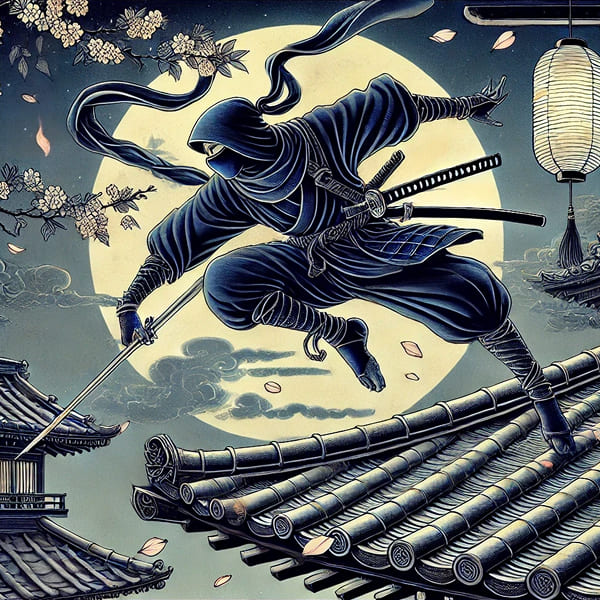Ninjas of Japan: The Secret Agents of Feudal Times and Their Enduring Legacy

Contents
Silent. Elusive. Deadly.
Ninjas have captured the world’s imagination as mysterious warriors cloaked in shadow—appearing in everything from ancient legends to modern anime. But beyond the myths lies a deeper truth: real ninjas were cunning spies, saboteurs, and masters of survival who shaped the course of Japan’s feudal history.
This article explores the true origins of ninjas, their secret training, unique weapons, and how their legacy lives on today—from martial arts and modern pop culture to real-life ninja towns you can still visit in Japan.
What Is a Ninja? Origins and Historical Background
The word ninja (忍者) is composed of two characters: "忍" (nin) meaning “to endure” or “to conceal,” and "者" (ja) meaning “person.” Ninjas were practitioners of ninjutsu, the ancient art of stealth and strategy. Their roots can be traced back to Japan’s Sengoku period (15th–17th centuries), a time of constant warfare between rival warlords.
While samurai upheld the noble code of bushido, ninjas employed irregular and unconventional tactics. They specialized in espionage, sabotage, and assassination, operating under the radar to gather intelligence and execute critical missions.
Ninja vs. Samurai: Different Approaches to Warfare
Samurai followed strict codes of honor and loyalty, often engaging in face-to-face combat. In contrast, ninjas prioritized survival, deception, and results. Their methods included disguises, silent infiltration, and strategic subterfuge, making them indispensable assets during Japan’s turbulent feudal era.
Ninja Skills and Specialized Training
To become a ninja required rigorous training in both body and mind. Key skills included:
Stealth and Movement
Ninjas mastered the art of moving undetected, often working at night in dark, inconspicuous clothing—not necessarily black, as popular media suggests.
Espionage and Intelligence Gathering
Infiltrating enemy strongholds and extracting information was a vital ninja function. Their surveillance and reconnaissance abilities played a crucial role in warfare strategies.
Assassination and Sabotage
Ninjas were highly trained in silent killing techniques and methods of destroying enemy supplies and morale through sabotage.
Martial Arts and Weapon Proficiency
Ninjas trained in jujutsu (unarmed combat), kenjutsu (swordsmanship), bojutsu (staff techniques), and the use of concealed weapons such as shuriken (throwing stars) and kunai (dagger-like tools).
Disguise and Psychological Manipulation
By dressing as merchants, monks, or peasants, ninjas could blend into enemy environments and carry out missions without raising suspicion.
Ninja Weapons and Tools of the Trade
Ninjas used specialized equipment tailored for stealth and efficiency, including:
- Shuriken – Used for distraction or injury.
- Kunai – Dagger-like tools for climbing and close combat.
- Ninja Sword (Ninjatō) – Straight, short blade for quick, silent attacks.
- Smoke Bombs – Enabled fast escapes and confusion.
- Kusarigama & Climbing Tools – For scaling walls and disabling enemies.
Ninjas in Modern Pop Culture
The global image of the ninja has been shaped by media portrayals—movies like Enter the Ninja (1981), the Teenage Mutant Ninja Turtles, and popular anime such as Naruto. Though exaggerated, these depictions have kept the ninja spirit alive for new generations.
Ninja Heritage and Tourism in Japan
Today, Japan embraces its ninja history through themed attractions, museums, and festivals. Cities like Iga and Koka, historically associated with ninja clans, host annual ninja festivals and offer immersive experiences at ninja museums. Ninja-themed restaurants and parks allow visitors to learn about their tools, techniques, and traditions.
Why Ninjas Still Matter
The legacy of the ninja endures—not just in entertainment, but as a symbol of adaptability, resilience, and strategy. From martial artists to history buffs and curious travelers, people around the world continue to be fascinated by Japan’s mysterious shadow warriors.
Curious to walk in the footsteps of a real ninja?
From Iga to Koka, Japan offers many places where you can explore their hidden world firsthand.